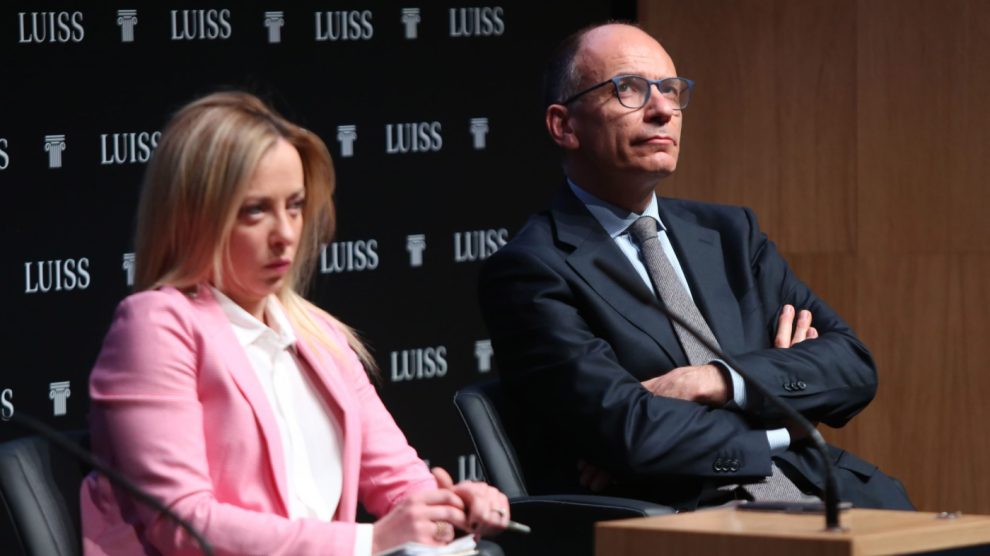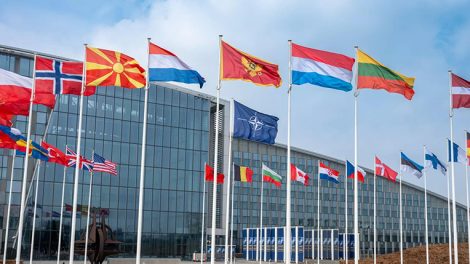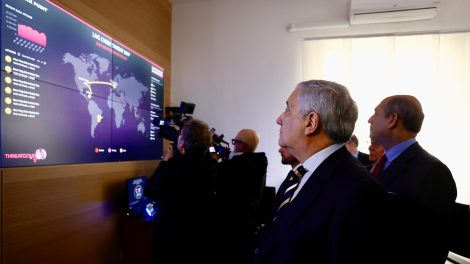The following is a schematic adaptation of Mr Coticchia’s original op-ed on our sister website, Formiche.net.
Setting the stage. Before considering the electoral programmes of the centre-left and centre-right coalitions – which are currently leading the electoral race – and what they entail for the future of Italy’s defence, two premises are in order.
- Italy is a middle power with significant domestic, regional, and international constraints. Thus, the next government’s freedom on foreign and defence issues will be limited. Nevertheless, party ideology can and has conditioned foreign policy choices in the past (think 9/11 or Russia’s invasion of Ukraine). Understanding their history and current positions yields insights.
- Defence issues are generally overlooked in Italian public discussion. Still, the parties’ programmes denote this time an uptick in interest and level of detail on foreign policy and defence – perhaps it’s because of the war in Ukraine.
Substantial continuity on key issues. There are no major differences in the coalitions’ general orientation, including crucial issues such as alliances. Thus, expect substantial continuity in the next government’s basic choices.
- That proved true even under the League-Five Stars Movement government, seen by many as a “populist experiment.” It may have been critical of the EU but nonetheless upheld its central lines. For instance, the radical right parties support EU defence.
- It’s quite relevant – and reassuring for external actors – that the centre-right ranks the respect of Italy’s alliances, and the strengthening of its role and interests within them, at the very top.
Focus on the Med. Both coalitions highlight the “Wider Mediterranean” as a vital area for Italian national interests. I believe this is a truly significant and underestimated fact. In light of the conflict in Ukraine, this element must be strongly emphasised.
Key differences. While the centre-left emphasises the development of European defence policy – hinged on values such as multilateralism –, the centre-right’s focus is on the “domestic dimension of defence,” which begins with strengthening the controversial operation “strade sicure”, which deploys troops on Italian streets.
- If the latter coalition wins, it will be interesting to understand how it will actually manage to implement this domestic vision. Starting with the League’s boutade of re-establishing compulsory military conscription (which I believe and hope will not have any follow-up, although the party’s programme explicitly mentions it). And considering the “naval blockade” and the bolstering the number of Armed Forces in permanent service, mentioned in Brothers of Italy’s programme.
Centre-right: reality check. The above perspectives are partly in line with the recent reform of the Armed Forces but could significantly influence their future structure, bringing them closer to territorial defence – an almost barracks-like, Cold War-style conception.
- This vision is perhaps understandable in the light of changing threats (with the return of rivalry between great powers and inter-state conflicts in Europe as well) but far removed from the path of professionalism and operativeness taken by the armed forces in recent decades.
- Also, there’s no mention of the effects such a shift could have on the age-old problems of Italian defence: budget imbalance (in favour of personnel spending) and the composition of forces (whose average age is especially high).
Centre-left: internal differences. From the Democratic Party, we can expect continuity with the choices of Defence Minister Lorenzo Guerini, generally appreciated by the defence sector. On the other hand, the programme of their coalition partners (the alliance of the Greens and the Italian Left) is closer to pacifist positions.
- The latters oppose buying new weapons systems and propose the creation of a “Department of Non-Armed and Non-Violent Civilian Defence” and Italy’s adhesion to the Treaty for the Prohibition of Nuclear Weapons (TPNW) as an observer state.
- Thus, there are potential conflicts on the issues of military spending, while the members of the centre-right coalition appear united in supporting it.
- There are ambiguities in the centre-right coalition, too, regarding the war in Ukraine. Especially given the League’s positions (doubtful on military aid and sanctions) on Russia
The down-low. On the whole, it will be necessary to assess how many of these positions (on both sides) will ultimately be purely symbolic, addressed to their constituency at this stage, and how many will be so salient that they could spark contrast once a coalition reaches government.
- The literature tells us that a key factor in determining the Italian MPs’ positions on certain issues (again, military missions) is whether they sit in the government.
- The scholarly debate, however, also highlights the relevance of party ideology – and therefore the ability to influence – when it comes to issues that are especially central, both for political formations and for public opinion.
- Consider, if you will, how policies can shape the use of the Armed Forces to combat immigration.





